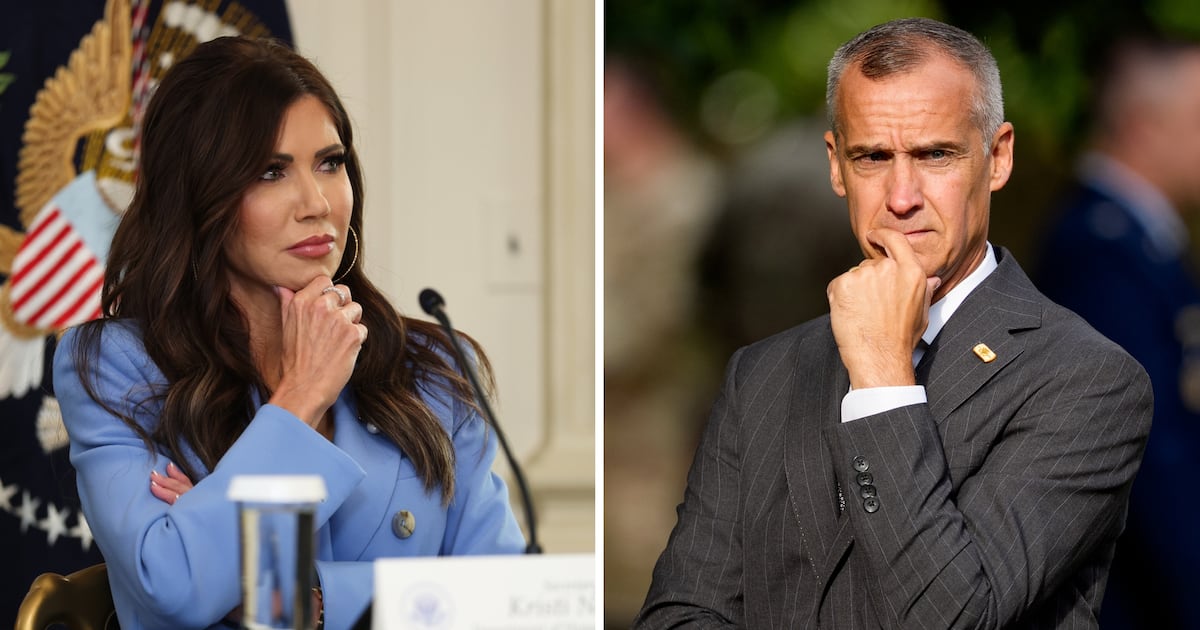Kudos to Vladimir Putin for proposing a formula to eliminate Syria’s chemical weapons arsenal. Any action that reduces stockpiles of chemical, biological, or nuclear weapons anywhere should be applauded. Each day’s news testifies to the fact that the world is awash in weapons, both “conventional” and unconventional. That the United States accounted for 78 percent of world arms sales in 2011, according to the Congressional Research Service, is not something to be proud of.

But as loudly as we applaud Putin’s initiative, we just as strongly take issue with his timing. When he announced his proposal, the U.S. peace movement was within days of achieving its greatest victory in decades, as both houses of Congress were on the verge of repudiating U.S. bombing of Syria in response to a groundswell of antiwar sentiment. The American people, and a growing number of their representatives, had finally come to understand that threatening, bombing, and invading other countries was not the way to solve problems. Punishing the vile Assad regime by blowing up Syrian government assets would benefit neither the Syrians nor the Americans. Sixty-three years of American military involvements, from Korea through Iraq, Libya, and Afghanistan, had proven that U.S. bombing of other countries had achieved little more than obscenely fattening the coffers of America’s arms producers and sellers—modern day merchants of death. The purpose of publicly rejecting military action would not be to embarrass Obama, who had long resisted pressure to attack Syria and may have welcomed this face-saving way out. It would be to announce forthrightly that the American people are as sick and tired as is the rest of the world of having the U.S. serve unilaterally, or as the backbone of coalitions of the “willing,” to police the planet often in defiance of both the U.S. Constitution and international law.
The opposition to attacking Syria came from a remarkable coalition. Knee-jerk Obama haters who would oppose anything he supported, neo-isolationists of the Ron Paul variety, and antiwar progressives formed an interesting new coalition. Among the recent converts was one who really didn’t fit into any of these categories—Robert Gates. Gates, the former CIA director and Secretary of Defense, warned that recent presidents “have become too quick to reach for a gun to solve an international problem.” Gates wondered, “Haven’t Iraq, Afghanistan and Libya taught us something about the unintended consequences of military action once it’s launched?” He had already been having second thoughts when, in February 2011, he told West Point cadets, “any future defense secretary who advises the president to again send a big American land army into Asia or into the Middle East or Africa should ‘have his head examined,’ as General MacArthur so delicately put it.” Gates had parted ways with Hillary Clinton and John Kerry, who had also supported authorizing Bush’s Iraq invasion, Obama’s troop increase in Afghanistan, and the toppling of Gaddafi in Libya. But, unlike them, he saw the folly of launching missile strikes on Syria, which, he argued, would not only “be throwing gasoline on a very complex fire in the Middle East,” but would, in many people’s eyes, make the U.S. “the villain instead of Assad.”
That such statements were coming from Gates, who for decades had been a leading architect of the American empire and a staunch defender of the military interventions that propped it up, reflected the abject failure of the neocon campaign to turn the 21st century into the “new American century.”
One shouldn’t forget that the neocon interest in toppling Assad had long predated legitimate concerns over the Syrian bloodbath. In fact, Syria has figured prominently in neocon fantasies for years. It was high on the list of prized targets during the Bush administration’s post 9/11 euphoria. After the anticipated cakewalk in Iraq, Syria’s turn would come. The leading neocons competed with each other to come up with the most grandiose vision of Middle East and planetary restructuring. Undersecretary of State John Bolton, though not usually known for his restraint, envisioned Syria and North Korea as the next two in line for regime change. Leading neocon strategist Norman Podhoretz thought much more expansively. “The regimes that richly deserve to be overthrown and replaced are not confined to the three singled-out members of the axis of evil,” he wrote in his journal Commentary. “At a minimum, the axis should extend to Syria and Lebanon and Libya, as well as ‘friends’ of America like the Saudi royal family and Egypt’s Hosni Mubarak, along with the Palestinian Authority, whether headed by Arafat or one of his henchmen.” When retired general Wesley Clark visited the Pentagon in November 2001, a senior military staff officer told him “of a five year campaign plan … beginning with Iraq, then Syria, Lebanon, Libya, Iran, Somalia, and Sudan.” Former U.S. ambassador to Saudi Arabia Charles Freeman dismissed such thinking as the rantings of people who “know nothing about the Middle East.” Anthony Cordesman of the Center for Strategic and International Studies noted that such thinking “crosses the line between neo-conservative and neo-crazy.” Obama, too, apparently realized how disastrously recent military interventions and attempts at regime change had worked out and resisted deep involvement in Syria despite sustained pressure from neocons, militarists, and his own liberal interventionists like Susan Rice and Samantha Power. He was finally boxed in by his own ill-conceived red line until Putin offered him a way out.
Not only had the Iraq invasion created chaos, death, destruction, and near civil war in Iraq, it helped unleash the sectarian passions that now roil Syria and much of the rest of the region. Conditions in Syria were ripe for an explosion. By 2009, poverty stood at 44 percent and unemployment at 20 percent. Both have risen sharply since. Exacerbating the situation was the fact that Syria was in the midst of a six-year drought that began in 2006. The consequences were devastating. Sixty percent of Syrian land became parched. Seventy-five percent of farmers lost their crops. In some areas, 85 percent of livestock died. At least 160 villages were abandoned. One and a half million people were internally displaced. The cities swarmed with desperate refugees. Among the areas hardest hit was the city of Dara’a, where the uprising began in February 2011. Syrian government mismanagement exacerbated the problem, but the source of the drought, according to a 2011 report by the National Oceanic and Atmospheric Administration (NOAA), was man-made climate change, which the U.S., most pointedly and most shamefully, still refuses to take seriously as the Koch brothers and other energy industry-linked falsifiers continue to weave their dangerous web of lies and deceit.
None of this should be allowed to diminish the seriousness of the human tragedy that is unfolding in Syria. The interventionists are right that something needs to be done. That something, however, is not a military strike or arming an opposition increasingly dominated by Islamic extremists. A solution will not come from solely within Syria—at least not in the near future. Too much blood has been shed and the lines have hardened. A solution will have to be imposed from without. Unified U.N. Security Council action has been stymied by a number of factors including the opposition of veto-wielding Russia and China. Since Obama took office, U.S. relations with both countries have gone from bad to worse. The Obama administration needs to reverse course in its dealings with these two nations both to get cooperation on Syria and to defuse growing tensions.
Under Obama, the United States has embarked on a foolhardy Asia “pivot,” announced most forcefully by the ever-hawkish Hillary Clinton in her November 2011 Foreign Policy magazine article titled “America’s Pacific Century.” Since that point the U.S. has striven aggressively to isolate and “contain” China, much as it had with the Soviet Union during the Cold War. It has strengthened military ties with and increased arms sales to other Asian nations, revamped its military policy, positioned more troops, announced plans to rebalance its fleet, and generally militarized the conflict. In response, the People’s Daily, the official Chinese newspaper, informed the United States that it could forget about Chinese cooperation on other global issues: “American politicians are totally mistaken if they believe they can, on the one hand, demand that China behave as a responsible great power and cooperate with the United States on this and that issue, while on the other hand irresponsibly and wantonly harm China’s core interests.” It is clear that the United States needs to abandon this foolhardy approach if it hopes to get China’s help with Syria or other vital issues.
Relations with Russia have also soured as the Russians deplored U.N. overreach in Libya and gave temporary asylum to Edward Snowden, who bravely revealed the astounding reach of U.S. government surveillance. Putin recently mocked Obama’s trite declarations of American exceptionalism, which Mikhail Gorbachev had earlier declared dangerous and delusionary. Three American policies particularly irk the Russians—NATO expansion, weaponization of space, and missile defense. While it is too late to prevent George W. Bush from abrogating his father’s pledge to limit NATO expansion, it is possible to give assurances that NATO would expand no closer toward Russia’s border. Stopping the headlong American drive to weaponize space, which almost the entire civilized world opposes, would send a positive signal to China as well as Russia. But nothing would be more welcome in Russia than concrete steps to halt construction of missile defense systems in Eastern Europe.
Soviet mistrust of American intentions regarding missile defense skyrocketed following publication of a 2006 Foreign Affairs article by Keir Lieber and Daryl Press contending that U.S. nuclear capabilities so outpaced those of Russia and China that neither country could effectively retaliate against a U.S. nuclear attack. The U.S. had achieved the first-strike capability it had long been seeking.
That the article was published by the Council of Foreign Relation lent added credibility. The Kremlin was in shock. The article “sent heads spinning” in Russia “with visions of Dr. Strangelove,” reported the Washington Post. Soviet strategists knew that U.S. missile defense would be worthless in protecting against a large-scale Russian first strike. However, if the United States struck first, missile defense might prove capable of striking down the handful of retaliatory Chinese or Russian weapons that might survive such an onslaught. As with China, the United States has room to maneuver if it wants to win Russian trust and cooperation, including on Syria.
The third country that can help negotiate a Syrian settlement is Iran. Though a charter member of Bush’s “axis of evil,” Iran’s new president, Hassan Rouhani, has been conducting his own peace offensive in hopes of easing sanctions, normalizing relations, and sidestepping the threat of war. Americans must remember that the U.S.-Iranian narrative begins not with the revolution of 1979 and the associated taking of American hostages but with the CIA overthrow of the popular, democratically elected Prime Minister Mohammad Mossadeq in 1953, following his nationalizing British oil holdings. In his place, the U.S. installed the hated and repressive shah, who was finally ousted by Iranian nationalists two and a half decades later.
The Iranian initiative is not entirely unprecedented. Following the 9/11 attacks, Iran, like Russia, had come to the aid of the U.S. in its fight against the Taliban and Al Qaeda. Then, in May 2003, after a series of meetings between U.S. and Iranian officials, Iranian leaders offered the U.S. a grand bargain that would settle outstanding issues and mend relations. The terms were extraordinarily favorable to the U.S. Iran sought enhanced security, mutual respect, and access to peaceful nuclear technology. In return, it offered to recognize Israel as part of a two-state solution, assist in stabilizing Iraq, halt material support for Hamas and other Palestinian opposition groups and pressure them to “stop violent action against” Israeli citizens, attempt to transform Hezbollah into a “mere political organization within Lebanon,” and make its nuclear program fully transparent. But Bush administration neocons, salivating over regime change in Iran, spurned this extraordinary deal. As we say in our Untold History of the United States, “it was a blunder of epic proportions.” We may finally have another opportunity to restore friendly relations and win Iranian support for a negotiated settlement in Syria.
Obama is thus in a position to ease tensions with three of our primary adversaries and draw them into the Syria peace process. But he will have to show the kind of integrity, courage, and leadership that Gorbachev has urged on him and that he has thus far proven woefully unable to exercise. Unlike in 2008, progressives now have no illusions. But Obama has proven himself to be a pragmatic politician, who bends to pressure as he did in abandoning plans to bomb Syria. Once again the nation’s antiwar forces must mobilize on a massive scale to compel him to do the right thing. Doing so may not only save the lives of countless thousands of Syrians; it would put the world back on a path toward peace. And it might restore a bit of the luster to a Nobel peace prize that went to someone who has thus far proven himself to be anything but a man of peace.







